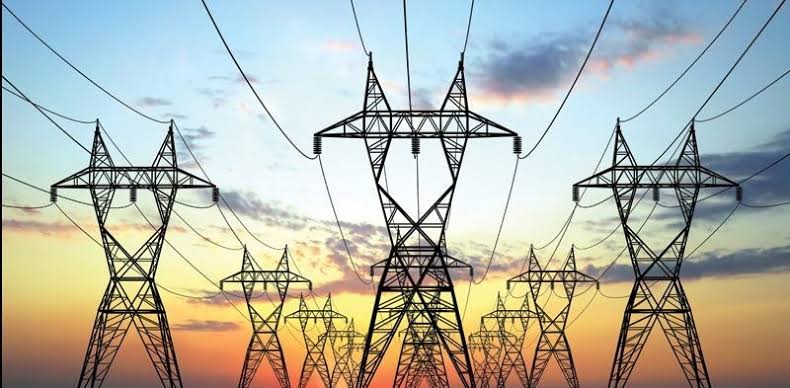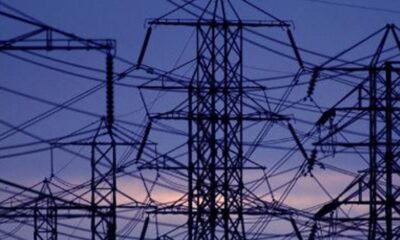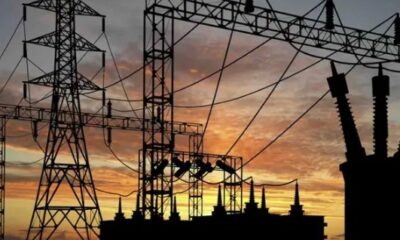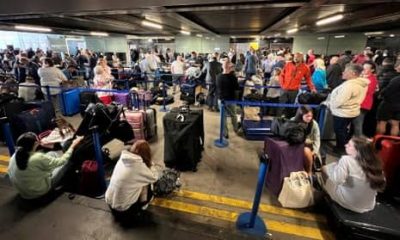News
ACF calls for state of emergency on power outage

By Francesca Hangeior
The Arewa Consultative Forum (ACF) has called for a State of Emergency on power outage, lamenting that over the past week and still counting, most parts of the northern states of Nigeria have been battling with sustained electric power supply outages, leading to near total paralysis in economic and social activities in the region.
The forum stated that the situation has led to growing generalised frustration of the populace.
National Publicity Secretary of the ACF, explained that “the situation appears even more dire and frightening as statements from officials charged with the responsibility for power supply, the Transmission Company of Nigeria (TCN) suggest that the problem is likely to persist interminable due to technical and security challenges.
Not unexpectedly, the problem has been a subject of intense debate and lamentations in the media, neighbourhood gatherings, business premises, etc.”
” The smallest of small businesses (such as telephone recharge points, barbing salons, food processors, drinks sellers, etc.), from which millions eke out a daily living are unable to operate. It has also been the same with medium-scale enterprises (such as rice mills, bread and confectionary bakers), that do not have alternative sources of power or cannot afford associated high fuel costs. “
“Home and office operate without cooling and heating and at night are thrown into the medieval dark ages of the primitive, pre-civilisation era. ACF notes that there has emerged, and growing, palpably evidence that it is to the utter consternation and disappointment of people that the problem appears to attract only deafening silence, suggesting indifference, from those who are constitutionally expected to respond with care and concern.”
“At extremes, not a few insinuate a deliberate strategy, among other tendencies, by the Federal Government to continue to socioeconomically shortchange and cripple the North. Such conspiracy hypotheses or theories abound in part because there has been no reaction from the Federal Government, the Minister for Power, elected officials including state governors, nor even feeble motions from state assemblies, such as to give the impression that the country’s leaders as little as care about the basic security and welfare of the people on whose behalf government presides over the nation. “
“An exception to the muteness has been the brave voices of some members of the National Assembly, brave because muteness has since become entrenched in the behaviour of elected personalities. The problem, rather serendipitously, also exposes the gross inequities in power supply generation and distribution nationwide. While the North generates substantial electricity power, it is ironically allocated the least in supply. It just does not make any sense that Lagos alone has eight (8) sub-stations, while the whole of the northern states combined, harbouring more than half of Nigeria’s total population has only THREE (3) sub-stations at Jos, Kaduna and Kano.”
” The question needs to be posed is if ours an Animal Farm analogy – those who substantially are allocated the least. The situation at hand is a portent national security threat, against which the silence, especially, of public officials amounts to a phenomenal textbook illustration of the abdication of responsibility, as unacceptable as can be.”
” To suggest that the problem has its roots in what had been done or not in the past is merely to make excuses. To lamely offer unintelligent excuses – excuses, not reason – that the problem cannot be immediately addressed due to banditry along power supply lines is to surrender to the terroristic criminals. It is inconceivable that Nigeria’s fairly vast array of security agencies, with their humongous budgetary allocations, cannot dislodge and subdue the rag-tag bandits, reclaim and dominate territory. “
“On this score, it is disappointing that the National Assembly is yet to publicly demand accountability over this unacceptable scenario. It also amounts to unadulterated and untenable obfuscation, that the TCN (and the FGN) cannot marshal the necessary human, technical and other material to address the situation at hand with despatch.
In the event and without equivocation therefore, ACF calls on the FGN and all those concerned to rise to the occasion by declaring a state of emergency on the problem before it snowballs into a crisis. This threat to national security should forthwith be treated with the seriousness it deserves.”
“The problem be addressed with the honest URGENCY it deserves; calls for an immediate review of power supply allocation in the country since all consumers pay for it. It is unacceptable that while the North acts as a candle that supplies light, it is being melted down and plunged into darkness. This ought to and must change with immediate effect in the interest of national stability, fairness and equity, and Calls on elected northern state governors and, members of the National Assembly representing constituencies in the northern states to speak out more vehemently and stridently demanding action on the problem as outlined above.”
News
A Chat with Janet Odio Okolo: A Mother’s Journey Raising a Child with Down Syndrome

News
Hon. Nnamchi Begins Street Lights Deployment In Isi Uzo(Photos)

Honourable Paul Sunday Nnamchi, representing Enugu East/Isi Uzo Federal Constituency in the 10th House of Representatives, has fulfilled his promise to illuminate communities in Isi Uzo Local Government Area.
The lawmaker has just begun the deployment of high-density solar-powered street lights in Ikem Nkwo, marking the beginning of a massive rollout of the street lamps across the communities in Isi Uzo.
This initiative, which started in Enugu East Local Government Area in 2024, aims to support the fight against insecurity in the state which according to him was to add to what Chief Security Officer of Enugu State Barrister Peter Mba had done to secure the state to attracts foreign investments.
The lawmaker expressed concern over banditry attacks, particularly by herdsmen, in some communities within Isi Uzo and Enugu East Local Government Areas in the recent pasts.
He believes that illuminating these areas with high-density street lights would help address the insecurity adding that he was prioritizing border and farming communities in Isi Uzo, where banditry has displaced residents and restricted farming activities.
Communities in Ikem, Eha-Amufu in Isi Uzo which borders Enugu and Benue State and Ugwogo-Nike in Enugu East have been vulnerable to these attacks due to their strategic locations.
News
May Day: Kalu Hails Workers, Applauds Their Role in Nation Building

By Gloria Ikibah
Deputy Speaker of the House of Representatives, Rep. Benjamin Kalu, has extended warm wishes to Nigerian workers as the country marks the 2025 edition of International Workers’ Day.
Kalu praised workers across various sectors for their commitment and resilience, describing them as the engine that keeps the nation moving. He acknowledged their sacrifices and unrelenting drive, especially during tough economic times.
In his message, he highlighted the efforts of the current administration under President Bola Tinubu to improve the welfare of public servants. He referenced the National Assembly’s prompt backing of the new minimum wage as a sign of the government’s seriousness about workers’ wellbeing.
The Deputy Speaker appealed for continued patience and understanding from Nigerians, noting that the ongoing economic reforms, while challenging, are designed to bring long-term relief and prosperity.
Kalu also called for unity, and said the country can only overcome its present difficulties if citizens and leaders work together in good faith.
He therefore urged workers to keep the faith and remain steadfast in their duties, assuring them that brighter days are on the horizon, and wished Nigerian workers a peaceful and fulfilling May Day celebration.
-

 Metro20 hours ago
Metro20 hours agoGunmen storm University of Benin teaching hospital, kill doctor
-

 Metro21 hours ago
Metro21 hours agoFCTA destroys 601 motorbikes over violations
-

 News12 hours ago
News12 hours agoAlleged money laundering: EFCC produces Aisha Achimugu in court
-

 News20 hours ago
News20 hours agoJust in: FG declares tomorrow public holiday
-

 News14 hours ago
News14 hours agoJUST IN: Major General Paul Ufuoma Omu Rtd, dies at 84
-

 News13 hours ago
News13 hours agoTinubu hails Dangote’s World Bank appointment
-

 News16 hours ago
News16 hours agoSAD! Professor’s son takes own life inside varsity staff quarters
-

 News20 hours ago
News20 hours agoFull list: FG approves N110bn to rehabilitate medical schools 18 institutions



















